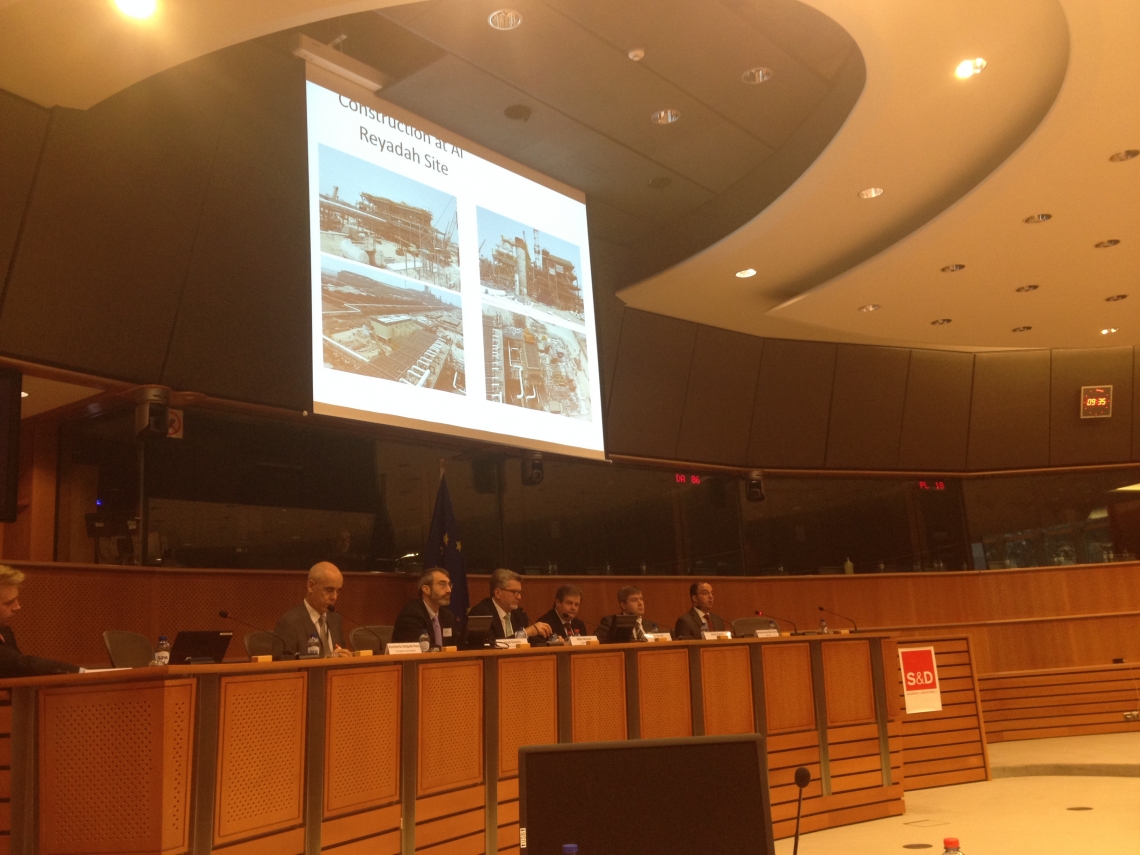
As a regional expert in the field of carbon capture utilization and sequestration (CCUS), Masdar Institute’s Dr. Mohammad Abu Zahra, Associate Professor of Chemical and Environmental Engineering, presented an innovative Abu Dhabi-based CCUS project at a European Parliament hearing hosted by British parliament member Theresa Griffin and Latvian parliament member KrišjÄnis Kariņš in Bruxelles, Belgium.
The parliamentary hearing provided a forum for stakeholders to hear directly from high-profile CCUS projects from around the world before considering ways to make best use of policy that could catalyze CCUS deployment throughout the European Union.
The collaborative CCUS project between Masdar, Emirates Steel, Al Reyadah – Abu Dhabi Carbon Capture Company, and the Abu Dhabi National Oil Company (ADNOC), aims to capture the carbon dioxide (CO2) emitted from Emirates Steel’s production plant, and utilize it for enhanced oil recovery (EOR).
“This Emirates Steel project is the first CCUS project from industrial site and that makes it unique and very important for the entire CCUS community in the UAE, the Middle East and globally,” said Dr. Abu Zahra. “The project aims to capture and utilize 800,000 tons of CO2 per year for EOR, contributing to both a cleaner atmosphere and more environmentally sustainable oil production. The project demonstrates the UAE’s efforts to keep its environmental and economic needs in balance and serves as an excellent CCUS model for other nations.”
The CO2 separation technology has already been installed at Emirates Steel’s production facility in Abu Dhabi’s Industrial City. The project is expected to start operation in March 2016.
Dr. Abu Zahra was invited to present the innovative CCUS research project on behalf of the project’s collaborators to a panel of policy makers and CCUS industry experts at the hearing, due to his in-depth knowledge of CCUS technologies and strong ties to the UAE.
“When Masdar Institute faculty members are called upon by industry leaders, policy makers and outside researchers to share their expertise in a specific research area, it demonstrates the Institute’s success in attracting and retaining high-caliber faculty – which is critical to the Institute’s vision of becoming a world-class university,” said Dr. Mohamed Sassi, Interim Dean of Faculty and Professor of Mechanical and Materials Engineering.
The collaborative Abu Dhabi-based CCUS project seeks to capture CO2 and use it as a value-added chemical for EOR in an economical way, which could lead to further innovation in CCUS technologies. EOR are practices designed to increase oil output from an oil reservoir by as much as 50%. Injecting captured CO2 for EOR can be a much more environmentally friendly and cost-efficient method compared to conventional EOR practices, using other chemical injection.
Erica Solomon
News and Features Writer
14 December 2015